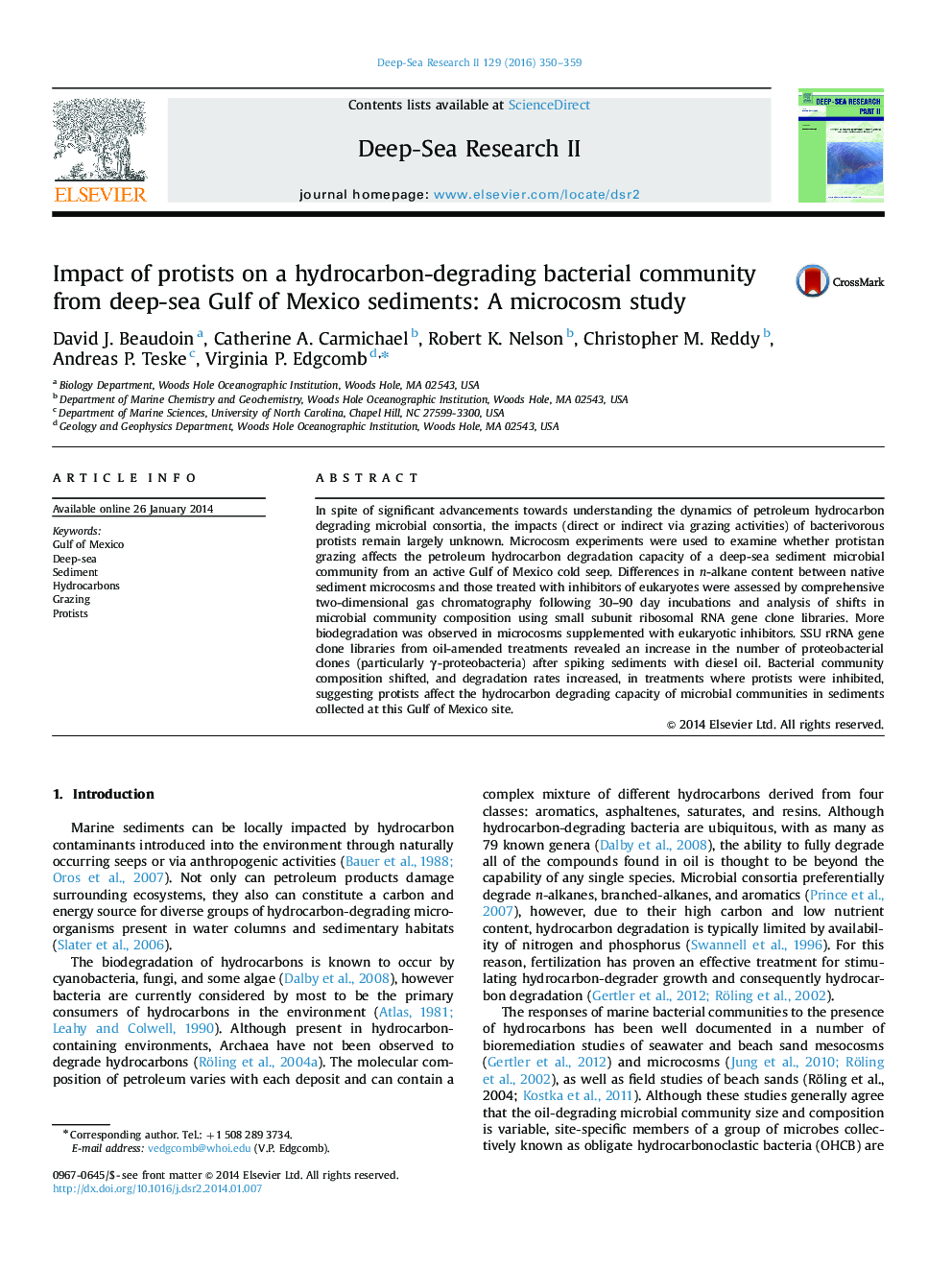| Article ID | Journal | Published Year | Pages | File Type |
|---|---|---|---|---|
| 6383976 | Deep Sea Research Part II: Topical Studies in Oceanography | 2016 | 10 Pages |
In spite of significant advancements towards understanding the dynamics of petroleum hydrocarbon degrading microbial consortia, the impacts (direct or indirect via grazing activities) of bacterivorous protists remain largely unknown. Microcosm experiments were used to examine whether protistan grazing affects the petroleum hydrocarbon degradation capacity of a deep-sea sediment microbial community from an active Gulf of Mexico cold seep. Differences in n-alkane content between native sediment microcosms and those treated with inhibitors of eukaryotes were assessed by comprehensive two-dimensional gas chromatography following 30-90 day incubations and analysis of shifts in microbial community composition using small subunit ribosomal RNA gene clone libraries. More biodegradation was observed in microcosms supplemented with eukaryotic inhibitors. SSU rRNA gene clone libraries from oil-amended treatments revealed an increase in the number of proteobacterial clones (particularly γ-proteobacteria) after spiking sediments with diesel oil. Bacterial community composition shifted, and degradation rates increased, in treatments where protists were inhibited, suggesting protists affect the hydrocarbon degrading capacity of microbial communities in sediments collected at this Gulf of Mexico site.
